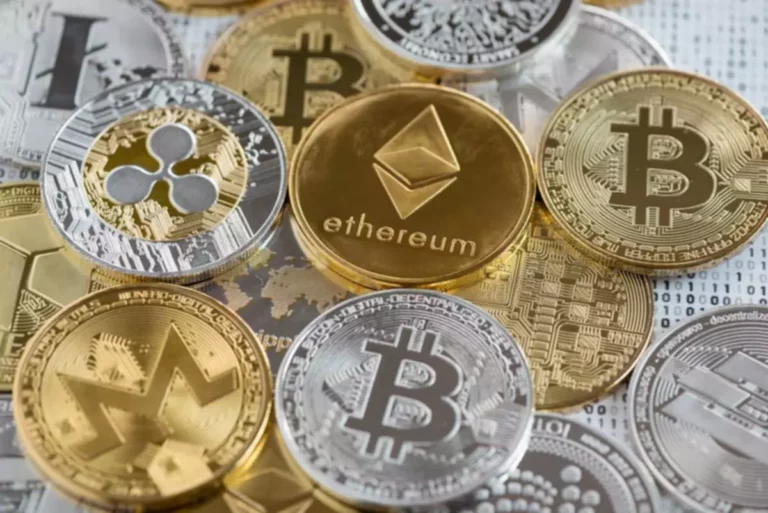Content
Nearly all ETFs provide diversification benefits relative to an individual stock purchase. etp vs etf Still, some ETFs are highly concentrated—either in the number of different securities they hold or in the weighting of those securities. For example, a fund that concentrates half of its assets in two or three positions may offer less diversification than a fund with fewer total portfolio constituents but broader asset distribution.
Beginner’s guide to ETFs: How to get started
Stock ETFs, also known as equity ETFs, invest in a basket of individual stocks. In addition, there are equity ETFs that focus on size or a particular investing style, such as value or momentum. But ETFs have since Yield Farming become popular with more casual investors because of their simplicity, ease of trading, and low fees. Because most ETFs are based on indexes, the larger ETFs can charge very low management fees compared with the average mutual fund. For more information about Vanguard mutual funds or Vanguard ETFs, obtain a mutual fund or an ETF prospectus or, if available, a summary prospectus. Investment objectives, risks, charges, expenses, and other important information are contained in the prospectus; read and consider it carefully before investing.

How Is an ETF Different From an Index Fund?
- ETFs, which originally replicated broad market indices, are now available in a wide variety of asset classes and a multitude of market sub-segments (sectors, styles, etc.).
- ETFs pool together the money of many investors to invest in a basket of securities that can include stocks, bonds and commodities.
- These risks often are heightened for investments in emerging/ developing markets or in concentrations of single countries.
- Review the Characteristics and Risks of Standardized Options brochure before you begin trading options.
Regardless of the structure—ETF or ETN—it’s important to read the fund prospectus before investing. When ETFs first launched at the beginning of the 21st century, they were primarily popular with traders, who took advantage of the ability to buy and sell them throughout the day. You can set up an automatic transaction into the fund from your bank. You can choose the dollar amount you want to invest as well as the date and frequency that you’d like the transactions to occur. You have the option to use your dividends to automatically buy more fractional shares of the fund. For more information about the tax treatment of a particular ETP, make sure to https://www.xcritical.com/ read the prospectus or pricing supplement.
A big draw of ETFs is the bottom line—reducing costs

Unlike mutual funds, ETFs can be traded whenever the markets are open, just like individual stocks. In addition, ETFs typically have lower fees than mutual funds and are built to be tax-efficient, helping you keep more of what you earn. ETFs, like mutual funds, are pooled investment products that offer investors the opportunity to purchase shares of a fund that holds the assets it tracks.
An exchange-traded fund (ETF) is a pooled investment security that can be bought and sold like an individual stock. ETFs can be structured to track anything from the price of a commodity to a large and diverse collection of securities. Mutual funds have long provided investors with an easy way to quickly and cheaply create diversified investment portfolios. You’ve likely heard of and invested in these kinds of funds — but you may not be as familiar with a newer kind of fund that offers some benefits that mutual funds don’t provide. Looking for new ways to make profit, Nate Most came up with the idea of mutual funds that would trade like stocks.
There’s generally more turnover within a mutual fund (especially those that are actively managed) relative to an ETF, and such buying and selling can result in capital gains. Similarly, when investors go to sell a mutual fund, the manager will need to raise cash by selling securities, which also can accrue capital gains. As per regulatory directives, Authorized Participants (APs) are designated to create and redeem ETFs. APs are large financial institutions that have huge buying power and market makers, such as large broker-dealers and investment banks and companies. In creating the fund, APs assemble the required portfolio of asset components and turn the basket over to the fund in exchange for a number of newly created ETF shares. When the need for redemption arises, APs return the ETF shares to the fund and receive the portfolio basket.
Individual investors can participate by using a retail broker who trades in the secondary market. Commodity ETFs – hold physical commodities, such as agricultural goods, natural resources, or precious metals. Most stocks, ETFs, and mutual funds can be bought and sold without a commission. Funds and ETFs differ from stocks because of the management fees that most of them carry, though they have been trending lower for many years. In general, ETFs tend to have lower average fees than mutual funds. The main difference between ETFs and mutual funds is that ETFs are traded on an exchange like individual stocks.
Allows inclusion in Individual Savings Accounts (ISAs), which are tax-efficient savings vehicles that allow investors to invest up to £20,000 per year without paying any income or capital gains tax on their returns. Another benefit is that ETFs attract no stamp duty, which is a tax levied on ordinary share transactions in the U.K. To help determine if investing in ETFs makes sense for you, you need to consider how they fit into your overall financial plan and investment strategy. Working with the right financial advisor can help you make smart choices about what belongs in your investment portfolio, and what might not be a good fit for your situation. Options trading entails significant risk and is not appropriate for all customers. Customers must read and understand the Characteristics and Risks of Standardized Options before engaging in any options trading strategies.
Even small fees can have a big impact on your portfolio because not only is your balance reduced by the fee, you also lose any return you would have earned on the money used to pay the fee. The information on funds not managed by BlackRock or securities not distributed by BlackRock is provided for illustration only and should not be construed as an offer or solicitation from BlackRock to buy or sell any securities. As unsecured debt instruments, ETNs don’t hold any underlying assets.
The registration exemption has made according to numeral 3 of Article 129 of the Consolidated Text containing of the Decree-Law No. 1 of July 8, 1999 (institutional investors). Consequently, the tax treatment set forth in Articles 334 to 336 of the Unified Text containing Decree-Law No. 1 of July 8, 1999, does not apply to them. These securities are not under the supervision of the Securities Superintendence of the Republic of Panama. The information contained herein does not describe any product that is supervised or regulated by the National Banking and Insurance Commission (CNBS) in Honduras. Therefore any investment described herein is done at the investor’s own risk.
Upgrading to a paid membership gives you access to our extensive collection of plug-and-play Templates designed to power your performance—as well as CFI’s full course catalog and accredited Certification Programs. Access and download collection of free Templates to help power your productivity and performance. A unique feature of an Exchange-Traded Fund is that it has Authozied Participants who help facilitate the market for fund units. Use our screener to identify ETFs and ETPs that match your investment goals. Gordon Scott has been an active investor and technical analyst or 20+ years.
So if you choose to invest in a given fund, make sure you’re comfortable and committed to gaining exposure to all those securities. Volatile stock performance is curtailed in an ETF because they do not involve direct ownership of securities. Industry ETFs are also used to rotate in and out of sectors during economic cycles. A futures contract is a legal agreement between two parties to buy or sell a set amount of an asset at an agreed-upon future date — But the price is set today.
These are typically used by traders who are speculators looking to take advantage of short-term trading opportunities in major stock indexes. An index fund usually refers to a mutual fund that tracks an index. An index ETF is constructed in much the same way and will hold the stocks of an index, tracking it.